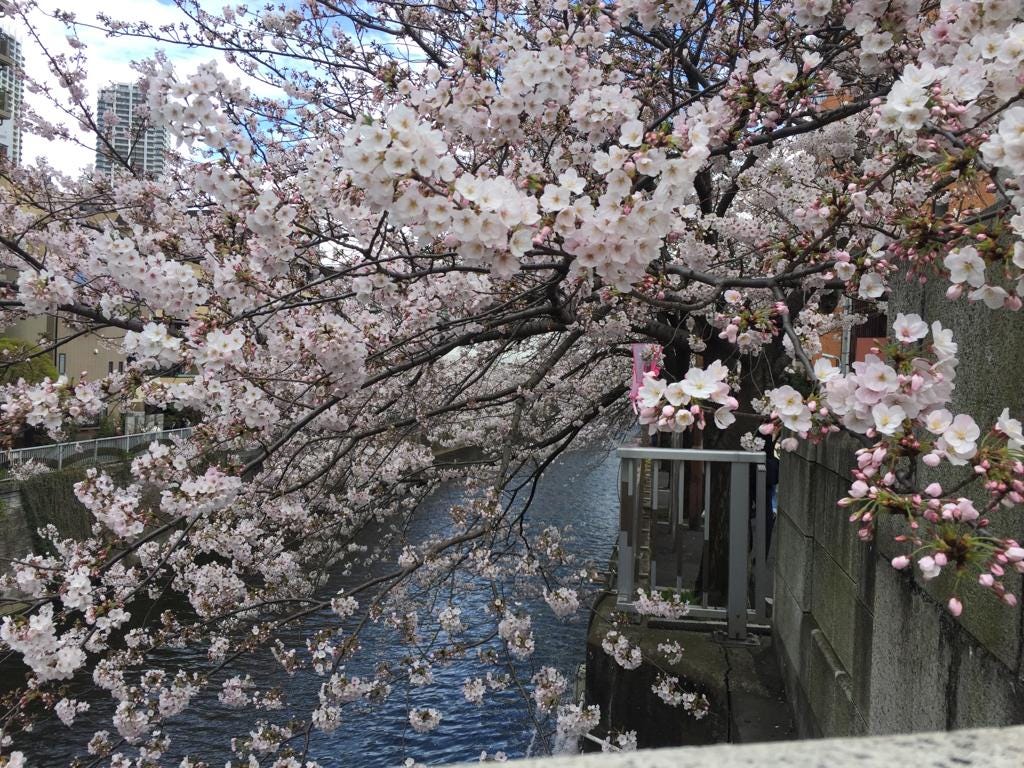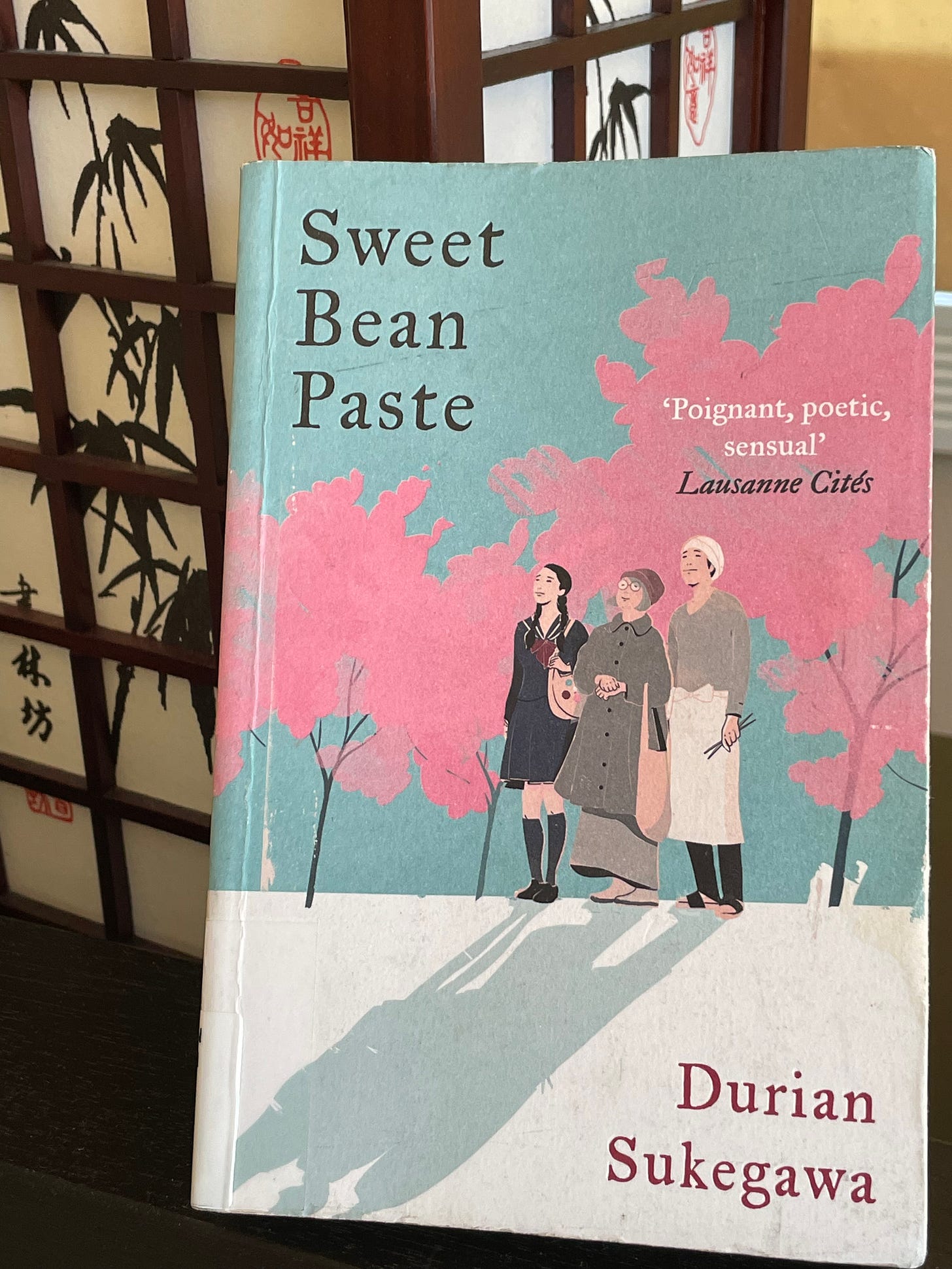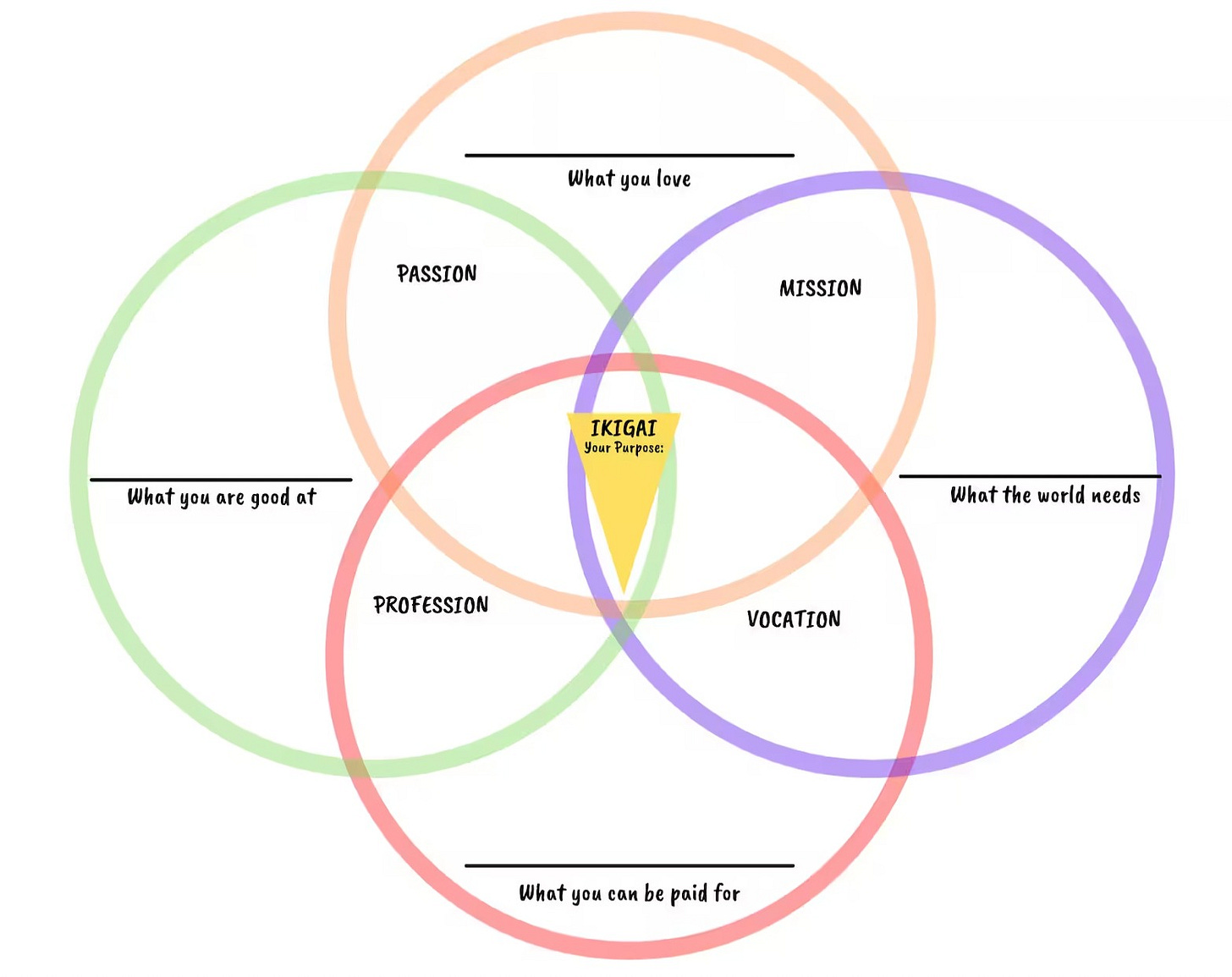LISTEN TO THE ADZUKI BEAN
If we only listened, we'd discover that every living thing has something to say.
There has to be a reason for being born, irrespective of individual circumstance ~ Durian Sukegawa, Sweet Bean Paste.

I shut the book at page 143 and I decided I would not pick it up again until later in the day. A few minutes later, however, I was back at it. I didn’t get up until I’d turned the last page and also read the author’s note. Sweet Bean Paste by Durian Sukegawa—translated from the Japanese by Alison Watts—was a recommendation by my neighbor and I cannot thank her enough.
When a book lands in my lap in the most unforeseen way—because of a random conversation I had with a neighbor—I wonder if it’s the design of collaborative forces unknown to me. Was a pantheon of my Hindu gods in heaven making up a list of books I must read so that I may grow a little more every day? If so, this book had to have been on that list.
Sweet Bean Paste is about the bubble-wrapped universe that we, the able-bodied, occupy. It holds a simple tale that will rankle in the heart for a long time because it takes us into a world most of us will never ever know. I’m unable to dwell on everything that happens in Sweet Bean Paste without giving away the reason it makes for such an earth-shattering story. If you’re a wimp who cannot wait, you’ll obviously sneak up to read this review in The Guardian to learn what the book is all about. Treat this post as a “Cease and desist” letter to get the best reading experience.

Sweet Bean Paste raked up all my dormant feelings about the things I was taught to fear as a child. The disconcerting feeling that touching someone or being in their presence would somehow contaminate me and threaten my existence did, in fact, return to me (and to all of us) in 2020.
During the height of Covid-19, there were, however, those essential workers who, by dint of their professions, had to go out and face the world. The rest of us were all transfixed into inaction; most of us stayed indoors, skewered by fears about contracting an unknown illness spread through the air. This tiny book addresses those human anxieties and feelings that rupture relationships and families and alter societies forever.

In Sweet Bean Paste, we meet Sentaro Tsujii, a jaded young man running a dorayaki shop in the heart of Tokyo. A dorayaki is a Japanese pancake with sweet bean paste filling; while the sweet bean paste is sweet, it’s supposed to have a subtle trace of the natural legume flavor with an earthy taste.
When we first run into Sentaro, he’s working in the kitchen of his shop, a favorite of Japanese schoolgirls. The book opens to a street where cherry blossom trees are in full bloom. A sweet fragrance blows down the road. A few weeks later the blossoms fall and on some days the schoolgirls complain that the petals had somehow entered their dorayaki. “Sentaro usually kept the windows open, and during cherry blossom season, petals sometimes drifted in, falling into pancakes as they cooked.”
Sentaro buys sweet bean paste filling from a local manufacturer for his dorayaki. While he listlessly gets through the day at his shop, his evenings are dark. He goes home and drinks, unable to face the person he has become. We learn that years before Sentaro broke the law and was incarcerated for two years. He has never really been rehabilitated, until, of course an old woman called Tokue Yoshii enters his life one morning just as he opens his shop and begins making pancakes.
Tokue views the whole task of bean paste making as a process imbued with life and love, one that must be carried out with attention to detail and care. For Sentaro, however, it’s just a business, one that he has been forced into because of a financial and moral obligation.
Sweet Bean Paste is a story about how Sentaro will change over the course of a year. What he discovers as the year progresses and his relationship with old Tokue deepens is that she is in his life for a reason. As he passes from one spring into another, Sentaro gleans more and more about Tokue’s lot in life. What begins to lend meaning to his own life, however, is Tokue’s uncompromising and relentless devotion to her craft.
Reading Sweet Bean Paste took me to my late mother’s kitchen in India’s Chennai. In Tokue’s slow, deliberate way of making her confection, I recognized my mother’s tendency to focus and pay undivided attention to whatever was on the stovetop. My mother didn’t compromise; if she were roasting methi (fenugreek) seeds, every single methi seed had to be roasted just right. She maintained that even if one were burned, it would alter the end result. It’s this quality of major attention to minor things that I recognized also in Tokue.
In one of the reviews of this book, I also learned about a term that the Japanese use for a certain attitude to the things we do. It’s difficult to translate it into English in a succinct way. It’s called kodawari and it alludes to the relentless pursuit of precision, quality, attention to detail and craftsmanship in one’s work, craft, or endeavor. There is another Japanese word that is now used often in western circles with respect to a certain attitude towards life. We’ve seen it talked about as the intersection between passion, mission, vocation and profession: ikigai. It’s a motivating force that gives a person a sense of purpose or a reason for living.
I found both the ideals, kodawari and ikigai, embodied in Sweet Bean Paste and I believe it was the recognition of both those ideals in Tokue Yoshii that ultimately lends meaning to Sentaro’s own precarious existence.
I loved the translation for the most part but in a few places I found myself being thrown out of the reading experience. There was also one usage, the shortening of '“probably” to “prob’ly” that I found odd and unnecessary. In another instance, the author writes about Sentaro’s experience eating Tokue’s bean paste: “It had a rich aroma, and sweetness that spread across his palette.” The translator really meant to say “palate” which refers to a person's appreciation of taste and flavor. If it were the translator’s oversight, after all, I wondered why the editor didn’t catch it. Despite these little snags, I will declare that Sweet Bean Paste is smooth, sweet and wholesome. I have no doubt at all that for most of us wherever we may be and whatever the stage of our lives, it’s that seminal book that we’ve needed to read.






Nice review, will try to get my hands on the book 👍🤩
This was another very special post, Kalpana, so moving and thought-provoking. This is yet one more book that I must read now! The Japanese have such wonderful concepts, don't they? My particular favorite that resonates with me increasingly as I age and fall apart is Wabi Sabi.
Thanks for all your hard work on this series - it is truly a delight to read every week, and is something I look forward to.